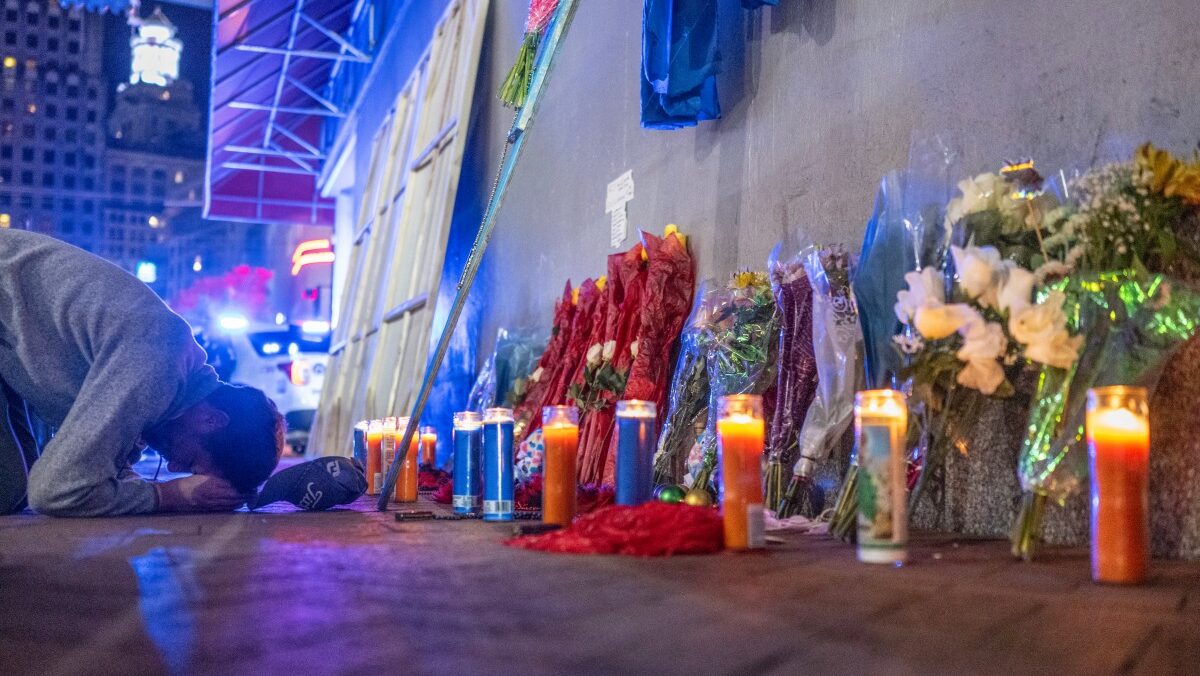The perpetrator of the terrorist attack in New Orleans on New Year’s Eve acted alone and was “100% inspired” by the Islamic State (ISIS) terror group, according to the authorities investigating the case, who are now focusing on why he became radicalized.
Forty-two-year-old Shamsud-Din Jabbar rammed his pick-up truck into a crowd of partygoers on New Year’s Eve, killing fourteen people, and injuring 35 more. He himself was killed following a shootout with police officers.
A black ISIS flag was affixed to a pole on the back of his vehicle, and just before the attack, he posted several videos on Facebook proclaiming his support for the terror organization, the FBI said on Thursday, January 2nd.
In one video, Jabbar says he originally planned to harm his family and friends but was concerned the news headlines would not focus on the “war between the believers and the disbelievers.” In another, he said that he had joined ISIS before last summer.
The FBI is now focusing its attention on why the man became radicalized.
Shamsud-Din Jabbar was a U.S. citizen from Texas, who had served in the Army and had worked as a real estate agent in recent years. He did not have a violent criminal record.
Members of his family, as well as people who knew him, are dumbfounded by Jabbar’s actions. His half-brother said he hadn’t noticed anything suspicious when they last spoke two weeks ago, although he did mention that Jabbar was having trouble getting business ventures off the ground and was coming off his second divorce. He also added that his brother had recently renewed his Muslim faith after abandoning it in his 20s and 30s.
According to the New York Post, which obtained FBI photos from Jabbar’s Houston trailer home, the perpetrator had a copy of the Quran left open on a page about “slaying” in the name of Allah.
His home was also filled with chemical residue and chemical bottles, and he had a long list of compounds used in bomb-making. Jabbar had hidden two homemade bombs in coolers on the streets of the bustling French Quarter in New Orleans, which were later found and made safe.
The FBI believes that the New Orleans terror attack and the explosion on Wednesday, January 1st of a Tesla Cybertruck outside the Trump International Hotel in Las Vegas, do not appear to be linked, despite both perpetrators renting their vehicles from the same car-sharing app.
The explosion in Las Vegas caused only seven minor injuries to people who were in the vicinity of the truck, but the perpetrator, 37-year-old Matthew Alan Livelsberger, was found dead in the vehicle. He had shot himself before a homemade bomb caused the truck to blow up.
While Jabbar’s intentions seem clear, Livelsberger’s motive does not. The latter was an active, decorated soldier, serving as a member of the elite Green Beret forces, who had completed five combat deployments to Afghanistan.
The two attacks, though most likely not related to each other, have caused nationwide concern, and prompted authorities in major cities to beef up security.
For the first time, the presidential inauguration ceremony—which will see Donald Trump inaugurated as the next U.S. president in Washington D.C. on January 20th—has been designated a National Special Security Event, a decision made before the New Orleans attack.
Trump was the target of two assassination attempts in his election campaign last year, so he has every right to be worried about his own safety, especially given the fact that authorities assessed no “credible threat” before the attack in New Orleans.
“Our country is a disaster, a laughing stock all over the world! This is what happens when you have open borders, with weak, ineffective, and virtually nonexistent leadership,” Trump posted on his Truth Social account on Thursday. He emphasised that “a violent erosion of safety, national security, and democracy is taking place all across our nation.”
Our Country is a disaster, a laughing stock all over the World! This is what happens when you have OPEN BORDERS, with weak, ineffective, and virtually nonexistent leadership. The DOJ, FBI, and Democrat state and local prosecutors have not done their job. They are incompetent and…
— Donald J. Trump Posts From His Truth Social (@TrumpDailyPosts) January 2, 2025
Trump, who has on many occasions pointed out the link between illegal immigration and the rise of crime, has vowed to halt illegal immigration once he enters office.






